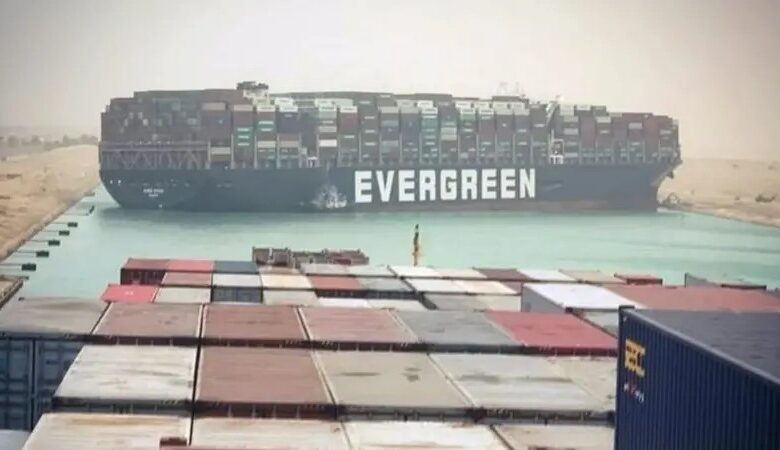Why Does the Suez Canal Keep Getting Blocked and What is the…

The Suez Canal, one of the world’s most critical waterways, has experienced several blockages in recent years, causing major disruptions in global trade. These incidents have raised questions about why the canal keeps getting blocked and what can be done to prevent future occurrences. In this article, we explore the key reasons behind these blockages and their far-reaching impacts on the global economy.
What is the Suez Canal?
The Suez Canal, located in Egypt, is a man-made waterway that connects the Mediterranean Sea to the Red Sea. Allowing ships to travel between Europe and Asia without the need to navigate around Africa. It is one of the busiest shipping routes globally, handling roughly 12% of global trade.
Recent Suez Canal Blockages
The Ever Given Incident
In March 2021, the world’s attention turned to the Suez Canal when the Ever Given, a massive container ship, became lodged sideways in the canal. The blockage halted traffic for nearly a week and caused delays for hundreds of ships waiting to pass through the canal. It led to a global ripple effect on shipping schedules, causing shortages and delivery delays in various sectors, from electronics to fuel.
Other Incidents
While the Ever Given incident is the most notable, other ships have also faced difficulties in navigating the narrow canal. Smaller blockages have occurred due to mechanical failures, grounding, and other navigational challenges.
Why Does the Suez Canal Keep Getting Blocked?
There are several contributing factors to the blockages in the Suez Canal:
1. Large Vessel Sizes
Modern shipping vessels are significantly larger than those used when the canal was first constructed. The increased size of container ships, such as the Ever Given, can make navigation more difficult. Especially in narrower sections of the canal. These larger vessels also carry more cargo, which means that if they do run aground, refloating them becomes a complex and time-consuming task.
2. Adverse Weather Conditions
Strong winds and sandstorms in the region can make it challenging for vessels to maintain their course through the canal. In the case of the Ever Given, high winds were a contributing factor to the ship losing control and blocking the canal.
3. Mechanical Failures and Human Error
Like any other form of transportation, ships passing through the Suez Canal are subject to mechanical issues and human error. Failures in steering systems, propulsion, or other critical components can result in ships becoming stuck. Additionally, despite the highly skilled nature of modern seafaring crews, human error remains a possibility, which can further exacerbate problems.
4. Narrow Waterway
While the Suez Canal has undergone expansions, parts of it remain relatively narrow, especially for larger vessels. Navigating these sections requires precision, and even a minor mistake can result in a vessel getting lodged or delayed.
Economic and Global Impact of Suez Canal Blockages
The blockages of the Suez Canal have far-reaching economic consequences. Each day the canal is blocked, it causes delays for shipping companies. Disrupts supply chains, and results in billions of dollars in losses.
1. Supply Chain Disruptions
The Suez Canal serves as a vital artery for the movement of goods between Europe, Asia, and other parts of the world. When blockages occur, goods cannot reach their destinations on time, leading to shortages in raw materials and finished products. These supply chain disruptions have long-lasting effects, impacting industries ranging from automotive to electronics.
2. Rising Shipping Costs
A blockage in the Suez Canal can cause a bottleneck of ships waiting to pass through, leading to increased congestion at ports and higher shipping costs. To avoid the delays, some ships may opt to reroute around the Cape of Good Hope. Adding thousands of miles to their journey and increasing fuel costs.
3. Impact on Global Trade
Since approximately 12% of global trade passes through the Suez Canal, any disruption can have a significant impact on international markets. In the case of the Ever Given, oil prices temporarily spiked due to concerns over supply delays. While the cost of goods such as electronics, clothing, and machinery also saw increases due to shipping delays.
Solutions to Prevent Future Blockages
1. Expanding the Canal
One solution being explored is the expansion of the Suez Canal to accommodate larger vessels and reduce the likelihood of blockages. Expanding the canal would allow for smoother navigation and the ability to handle larger ships with greater ease. Egypt has already initiated several projects to widen and deepen the canal.
2. Improved Traffic Management
The Suez Canal Authority (SCA) is working to enhance traffic management systems and improve the coordination of vessel movements through the canal. This could involve better use of technology to predict and manage congestion. As well as implementing stricter regulations for the movement of larger ships.
3. Use of Tugboats and Pilots
Tugboats and experienced pilots can play a key role in preventing blockages by assisting ships through difficult sections of the canal. Increasing the use of these resources could help mitigate the risk of future incidents.
Conclusion
The Suez Canal is a critical waterway for global trade, and its blockages have significant consequences for the world economy. While large vessels, adverse weather, and other factors can contribute to these incidents. Steps are being taken to reduce the frequency of blockages in the future. As shipping continues to grow and evolve, the importance of the Suez Canal will only increase. Making it crucial to address these challenges to ensure smooth global trade.
Also Read This: Rena Monrovia When You Transport Something By Car …



